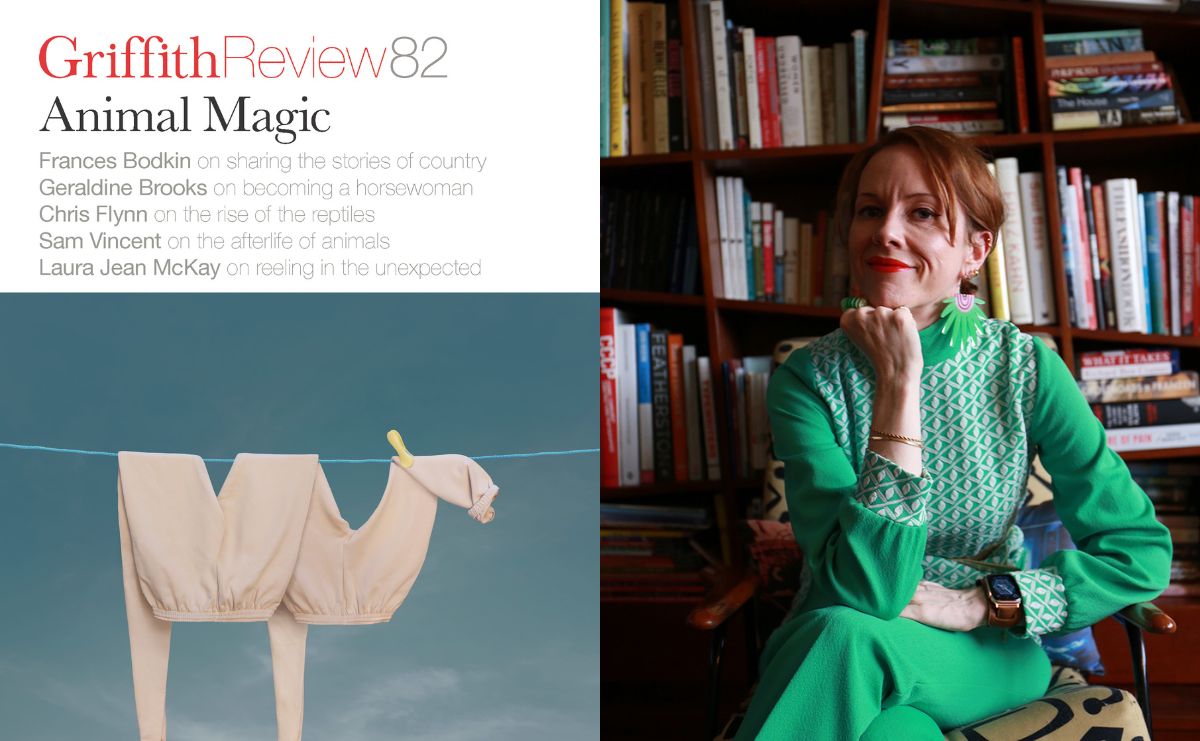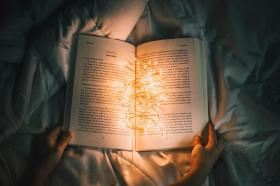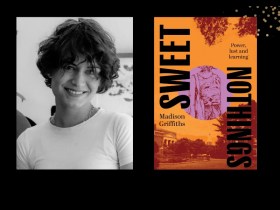This year, Griffith Review celebrated its 20th anniversary of publication. A long-standing literary institution in Australia, the magazine offers its readers a quarterly deep dive into literary and current affairs. In Issue 82, Griffith Review looks to celebrate the ‘complex bonds’ between the animal and human worlds, featuring creative and critical work from Declan Fry, Ronnie Scott, Laura Jean McKay and many others.
In her introduction, editor Carody Culver notes that this edition encompasses a complex range of perspectives. In Animal Magic, there is writing that captures animals ‘in life and in death, in the sea and in the soil, in the zoo and in the museum, in literature and film, in our imaginations and our memories and our homes’. It is through this examination of the intricate array of the more-than-human that the works in this issue explore the connections we share with animals, underscoring the critical implications for their, as well as our, survival. This angle, Culver argues, is prompted by the far-reaching environmental consequences of humanity’s pervasive influence on the world.
Animal Magic provides a wide gamut of work – from non-fiction essays and interviews, to visual essays, poetry and fiction. Both wild and domesticated animals tread paths of meaning through these pages, forming an edition that offers much in the way of thought-provoking reading. The pieces that stand out most are ones that consider animals in ways that are intimate, compelling and unflinching in their interrogation of this issue’s theme.
In ‘Mother of Pearls’ by Elizabeth Tan, human souls are transformed by a witch into oysters, which speak polyphonically throughout the text, a corpus of voices rolling into a collective “we”. The short story is finely crafted. Tan’s deft use of language forms a delicate yet muscular narrative fabric. It’s meditative and builds plot through visceral sensation and haunting memory. The human-oysters talk in their ‘slippery language’, a melodious unravelling of words that leave behind them a ‘wet, mucous fluttering’. Unsettlingly uncanny, Tan’s story speaks deliciously to the idea of animal magic.
Melanie Saward’s essay, ‘When the Birds Scream: Lessons from Cockatoos’, considers the author’s (re)connection to land through a sustained reflection on birds. Through an inextricably linked personal and cultural lens, birds come to inhabit literal and symbolic significances for Saward. ‘Country speaks,’ she writes. It is ‘always speaking, whether you’ve been taught to listen or not’. Slowly, throughout the essay, this voice grows in resonance – until it speaks through Saward’s words, becoming one with them. Bookended with observations of avian life at Varuna, this piece is both ardent and delicate, embodying an exquisite reflection of writerly craft and narrative urgency.
Between Anna Jacobson and Morgan Yasbincek’s poems there is a shared intimacy: both consider horses. In Jacobson’s ‘Before I Forget Again’, a ceramic steed searches for ‘shiny new apples to crunch’. The poem holds a delicate contour of thought across its spare lines, progressing subtly towards an abstract pressure point: memory flexing between tangible reality and a field of blue. Yasbincek’s ‘Metanoia’ is superbly corporeal. The horse at the centre of the poem is possessed of a ‘heaving soft coat’. It rides into the bush at night, the scene laced with the ‘strange scent of unwashed male body soaked in maple scents’. There is a spasmodic sense of violence, tinged with tenderness, here: Yasbincek evokes a heady wildness with remarkable precision and control across seven stanzas.
This is merely a small selection of the works that comprise this edition. Animal Magic offers its readers a diverse and carefully curated selection of works, all of which centre themselves on their authors’ intricate – and sometimes symbiotic – relationships to animals. As Culver notes, humans are vastly outnumbered by the wider animal population: in a time of ecological crisis, it is wise to pay close attention to our connections to the more-than-human world.
Read: Book review: The Flirtation of Girls/Ghazal el-Banat, Sara M Saleh
What seems most evident throughout the course of Animal Magic is the idea that our lives are inextricably bound up with those of other animals – and while they could thrive without us, we would be undeniably insular and isolated without them.
Griffith Review 82: Animal Magic, edited by Carody Culver
Format: Paperback
ISBN: 9781922212894
Pages: 207pp
Publication Date: 7 November 2023
RRP: $27.99





